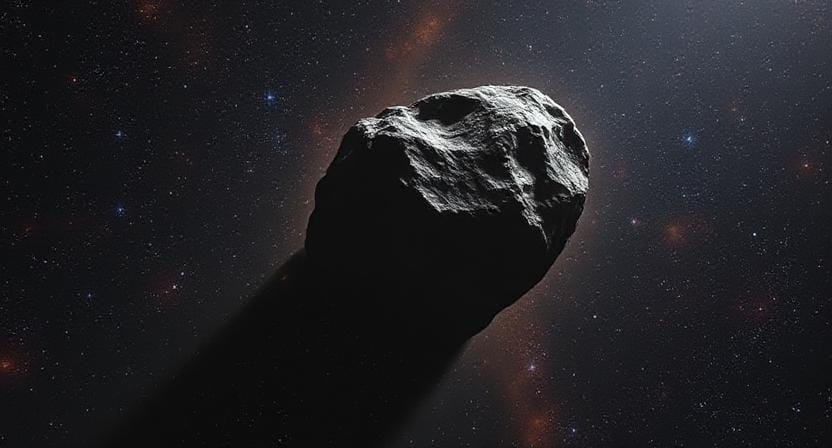Top Takeaways and Key Concepts
- Stay informed by following trusted asteroid tracking sources for early warning.
- Create a family communication plan so everyone knows how to connect in emergencies.
- Build a survival kit with food, water, tools, and first-aid supplies.
- Choose safe shelter locations ahead of time to protect against falling debris and impact effects.
- Practice calm response and drills to improve decision-making under pressure.
Summary of This Article
This article explains how to prepare for an asteroid emergency in a practical and calm way. It encourages staying informed through trusted updates, building a solid communication plan with family, and putting together an emergency kit with essential survival items. It also emphasizes selecting safe shelter locations, staying mentally prepared through calm thinking, and forming community support after impact. With knowledge, planning, and teamwork, anyone can face even cosmic threats with confidence.
Short Video Version of this Article
When you think of “asteroid,” what pops into your head? Maybe a huge rock zooming through space, coming to crash into Earth? That’s pretty close!
Please Note: This post may contain affiliate links. If you click one of them, we may receive a commission at no extra cost to you. As an Amazon Associate, I earn from qualifying purchases.
Picture this: you’re out camping, everything is fantastic. You’re roasting marshmallows by a lovely fire, birds are chirping, then—boom! An asteroid lands near you like it’s just joined the party uninvited. Yikes! It’s a little scary to think about.

So, how do we steer clear of becoming a giant dino-size fossil when this cosmic heavyweight comes barreling our way?
First off, staying informed is key. There are ways to track what’s out in the sky. Scientists keep a watchful eye on asteroids. Better to know what’s cruising around up there, right? It’s kind of like keeping one eye on the weather when you’re camping. You just want to stay prepared.
Next, it helps to have a plan. If an asteroid is headed our way, knowing where to go can make a difference. Maybe it’s a safe spot in your home or a sturdy building. Having a place to figure things out is calming.
You could even think about building preparedness into your camping trips. Bringing along a small emergency kit can be smart. It doesn’t have to be fancy, but just some essentials, you know? Band-aids, water, and snacks.
Always remember, there are people working hard to protect us. It’s not just on our shoulders. So, you can enjoy your time outdoors without that pressing fear.
Camping should be about roasting those marshmallows, telling stories, and laughing with friends. With a little thought and preparation, we can keep the fun going, even if the universe throws us a curveball. Adventure awaits—just make sure it’s asteroid-free!
Understanding Your Cosmic Threat Level

By the way, have you ever wondered how big these asteroids really are? Some can be as small as a car while others are bigger than Mount Everest. It’s like playing dodgeball with a mountain! NASA keeps tabs on these celestial objects, but let’s face it—most of us aren’t getting a personal alert when one is heading toward Earth. So how do we prepare?
First off, it might be good to understand just how often these rocks visit us. Interestingly enough, scientists estimate that Earth gets hit by smaller asteroids quite frequently—like every day!
But hey, don’t freak out. Most asteroids just burn up in the atmosphere, like my dreams of being a superstar athlete after gym class. Poof! Gone!
Sometimes, though, a bigger asteroid pops up. Imagine trying to outrun a T-Rex—that’s how fast you’d need to move. Kind of terrifying! But there’s no need to lose sleep over it.
You can stay in the know. Just keep an eye on the news and follow trustworthy sources. If they start buzzing about “potentially hazardous asteroids,” that’s your cue. You’d want to have your emergency kit ready. It doesn’t have to be huge—just some snacks, water, and anything else you might need.
Finding higher ground is key. Find a spot nearby that’s safe, maybe away from tall trees or boulders. Think about it like camping in a little valley—nice view, but you’ve got to watch those falling branches!
Staying calm is super important. We can’t control the cosmos, but we can control how we react. So enjoy your time outside. Breathe in the fresh air, look at the stars, and remember to laugh. Even when thinking about asteroids, there’s fun to be had!
Creating Your Survival Kit
 Speaking of emergency kits, let me tell you—a well-prepared camper never goes hungry…or extinct! What should go into your asteroid survival kit? Think of it like packing for a weekend trip but with slightly more urgency and less focus on fashion.
Speaking of emergency kits, let me tell you—a well-prepared camper never goes hungry…or extinct! What should go into your asteroid survival kit? Think of it like packing for a weekend trip but with slightly more urgency and less focus on fashion.
Start with food that has long shelf lives: canned beans are great because they’ll last longer than most relationships I’ve had! Don’t forget water; hydration is key unless you want to end up looking like one of those shriveled-up dinosaur fossils in the museum.
Next up: tools. You’ll want items like flashlights (because who wants to fumble around in the dark during an apocalypse?), first-aid supplies (you know, just in case), and maybe even some rope—it’s always handy whether you’re tying down gear or trying to lasso your friend who insists on running outside during an asteroid shower.
And let’s not overlook entertainment! Sure, there may be no Wi-Fi post-asteroid impact, but pack some cards or books. Trust me; nothing says “I’m surviving” quite like playing Go Fish while dodging meteors.
Choosing Your Hideout Wisely

Now that we have everything we need, where should we hide when the asteroid decides to play dodgeball with Earth? To be honest, choosing a place to stay is quite important. If there are caverns nearby, you could go underground. Or, even better, you could go to a strong bunker prepared for emergencies.
There’s still hope if you’re outside and looking up at the stars (and maybe some terrifying rocks). Look for a woodland that is thick. Thick trees can protect you from anything that fall from above. It’s a nice thought, isn’t it? Just think carefully before standing under something that is excessively tall, like a skyscraper or a cliff. If something goes wrong, those may become small avalanche machines!
You know what’s strange? A lot of people don’t know that their own backyards can be secure places. If things go tough, having a strong shed full of supplies could save your life.
You could even fill it with snacks, flashlights, and maybe some additional blankets. A little planning can make a big difference. Also, it’s kind of fun to think about how to make your backyard into a snug fort.
Life can throw strange things at us. But being ready can help you not worry about those things. You can do this! Enjoy those nights with stars, and realize that you’re never really alone. There is always something to chuckle about under the sky, even when things are a little scary.
The Art of Staying Calm Under Pressure

When faced with impending doom from above (like an asteroid) it’s easy to lose your cool. But keeping calm can mean the difference between being prepared or becoming history’s next exhibit at the Natural History Museum.
Take a moment to breathe deeply. I know it sounds a little goofy, but trust me, it helps. When panic sets in, it’s easy to forget that staying calm is key. I mean, have you ever seen someone escape danger while hyperventilating? Nope, never. Unless they’re sprinting from clowns, maybe!
Practicing mindfulness can really make a difference. Picture this: you’re sitting cross-legged in nature. Birds are chirping all around you. Feels nice, right? Focusing on those sweet sounds helps drown out the worries about flying rocks or anything else.
If you get nervous when chaos hits, take a breath. Think of something peaceful. You’re in control, even when it feels like everything’s spinning out. Just a few moments of calm can help keep your head clear.
Maybe try out some mindfulness techniques before you go camping. You could close your eyes and imagine your favorite place. Just breathing in and out, letting go of all the messy thoughts.
Chaos can feel overwhelming, but being prepared in your mind makes all the difference. You got this. Just take it one breath at a time!
What Comes After Impact?
Okay, everyone, let’s pretend we made it through our close call with Mr. Asteroid (or Ms. Asteroid). What do I do now? You may believe that everything would go back to normal after avoiding extinction, but spoiler alert: life isn’t always perfect following an impact.
You know what? Things are going to get a little wild. The power might go out, and there might not be enough supplies. People are going to be running about attempting to get what they need. It’s like watching a game of tag, but not as much fun.
You might have to learn more about eating. Yes, truly! If you want to make sure everyone gets enough, rationing becomes very critical. It’s like giving your pals cookies, but on a greater scale. You want everyone to get a piece.
Think about it. You can’t eat the whole bag of chips if there are four of you, can you? It’s better to store some for later. The same goes for snacks and canned items. Planning is helpful!
Don’t forget about your neighbors, either. During hard times, community is even more important. Speak to them. Talk on what to do if things get tough. You get stronger when you work together. It’s like a group of buddies who help each other.
You could want to form a small safety group. You can discuss about supplies, share skills, and establish a plan. It makes something scary into something you can tackle together. Having that support is huge, whether it’s rogue asteroids or something else. You’re not the only one going through this!
Preparing for an asteroid emergency may sound extreme, but having a plan reduces fear and increases safety. Staying informed, gathering essential supplies, choosing safe shelter, and practicing calm decision-making are practical steps anyone can take to protect themselves and their families in a rare but high-impact cosmic event.
Frequently Asked Questions
What is the first step in preparing for an asteroid emergency?
The first step is staying informed by following trusted asteroid tracking sources so you receive timely updates and warnings.
Why is a family communication plan important?
A communication plan ensures all family members know how to reach each other and where to meet if separated during an emergency.
What should I include in an asteroid survival kit?
Your kit should include long-lasting food, clean water, a flashlight, first-aid supplies, tools, and personal essentials.
Where is the safest place to shelter during an asteroid impact?
The safest options are underground spaces, basements, or reinforced interior rooms away from windows and falling debris.
How can I stay calm during an asteroid emergency?
Practice breathing techniques and mental preparation ahead of time to stay focused and make clear decisions under pressure.
Should I prepare differently if I live in a city or rural area?
City residents should plan evacuation routes and secure shelter options, while rural residents should focus on self-reliance and supplies.
What happens after an asteroid impact?
After impact, expect power outages and supply shortages, so ration resources and work with neighbors for safety and support.
Resources for Further Reading:
Asteroid Watch
https://www.nasa.gov/asteroidwatch
Emergency Preparedness Guide
https://www.ready.gov/prepare
Survival Skills 101
https://www.survivalskills.com
The Science Behind Asteroids
https://www.sciencedaily.com/astrophysics

Kevin Collier is a seasoned outdoor enthusiast and writer for Trekbug.com, specializing in outdoor adventures, survival strategies, and prepping insights. With a deep love for nature and a commitment to self-sufficiency, Kevin empowers readers to embrace the wilderness confidently. He shares valuable tips, practical techniques, and inspiring stories, helping both novice and experienced adventurers develop essential skills for surviving and thriving in the great outdoors.





